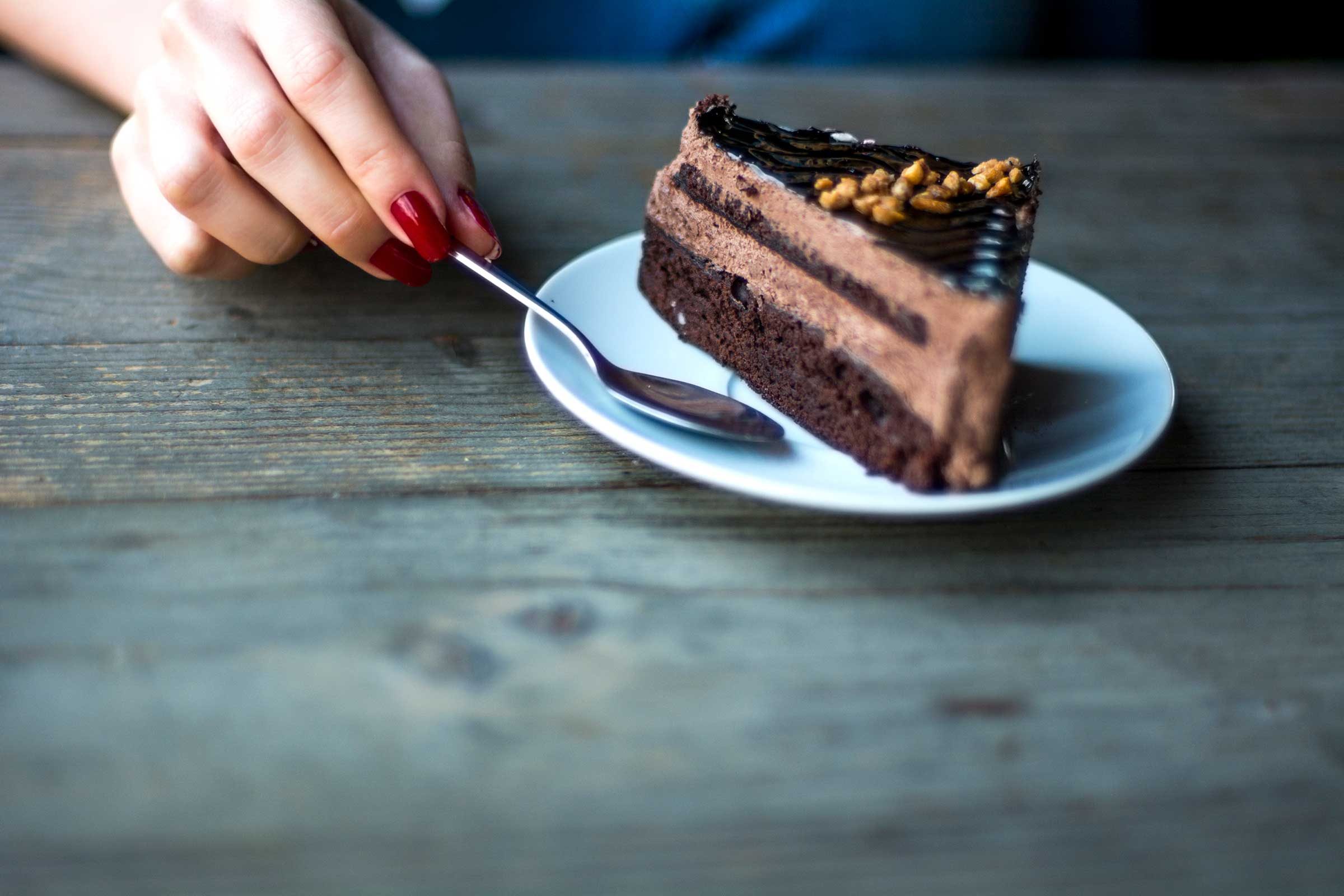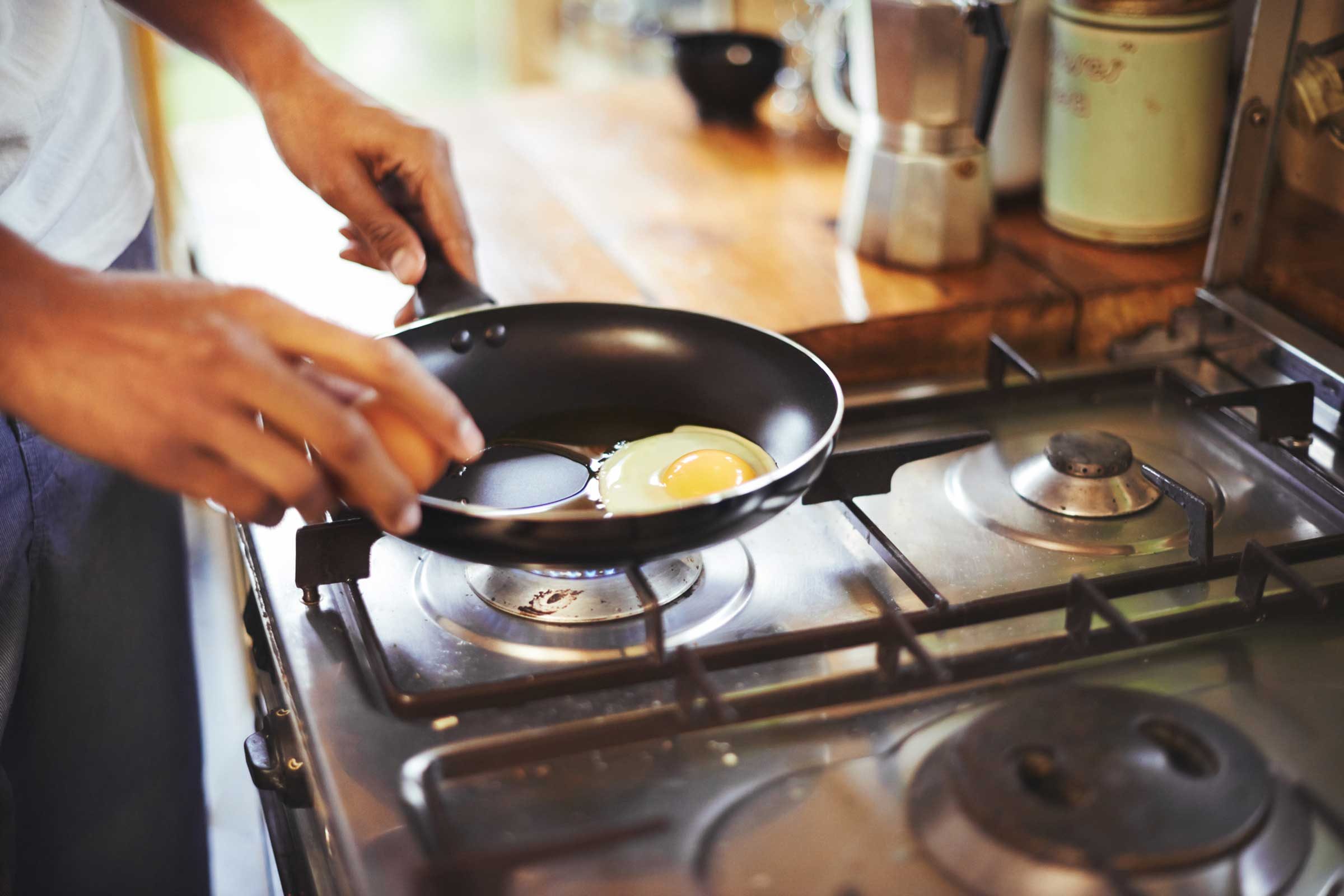
Don’t cut out sugar (completely)
Quitting sugar cold turkey is too drastic—and a recipe for bingeing, or at least reverting to old habits. (Start by learning about these surprising foods high in sugar.) “Slow and steady wins the race,” says Tiphani Seibert-Martinez, MS, director of patient education at the Minnesota Center for Obesity, Metabolism, and Endocrinology. Making small, simple changes to your nutrition is easier to sustain, especially since you can train your taste buds to enjoy things that aren’t as sweet over time, Martinez says. Not to mention that the anxiety of trying to avoid “all sugar” creates stress. And stress turns on the “fight or flight” mechanisms, increasing production of hormones that can raise blood sugar levels and suppress immune function, both which can minimize the benefits of eliminating sugar in the first place. These are the clear signs you’ve been OD-ing on sugar.

Take a drink
Of water, that is. Adina Niemerow, CN, a culinary nutritionist and author of Super Cleanse, is a true believer that “food heals.” According to Niemerow, sugar cravings could be a sign that you’re dehydrated. Before you hit the vending machine, drink a glass of water and then wait a few minutes to see what happens,” she says. Check out the other amazing benefits of staying hydrated.

Learn all the names for sugar
The ingredient “agave nectar” may not seem like a red flag, but sugar goes by many names. Some terms to look for include lactose, brown rice syrup, molasses, and dextrose, to name just a few. What’s worse, sugar can hide in foods where you least expect it: Barbecue sauce, pasta sauce, reduced-fat salad dressings, breads, baked beans, and some flavored coffees can be packed with sugar. Get in the habit of reading labels, and filter out high-sugar foods before they hit your shopping cart. Here are the secrets people on a low-sugar diet swear by to avoid sugar bombs.

Chill out and go to bed
When tired or stressed, your body will crave energy—usually in the form of sugar. These cravings are often a result of being sleep-deprived, going to bed late, or waking up too early. Niemerow recommends trying to nab a good eight hours of sleep a night. “And if you have to burn the midnight oil and start craving sweets, other experts say, reach for a small snack of one of these sleep-inducing foods.

Take a hike
When you cut your sugar intake, your body will want a new source of energy, and believe it or not, you can get it from exercise. Physical activity helps balance your blood sugar levels, reduce tension, and boost your energy levels, according to Niemerow. She recommends starting with 10 minutes a day and building up gradually as you’re comfortable. And per Martinez, increased activity can increase your endorphins or “happy hormones,” lessening sugar cravings and improving mood naturally. “You’ll start to feel better and want healthier foods,” she says. Try these other tricks for pumping up your body’s natural endorphins.

Pack in protein
Eating protein is an easy way to curb sugar cravings. “High-protein foods digest more slowly, keeping you feeling fuller for longer, and they don’t make your blood sugar spike the way refined carbs and sugars do,” Martinez says. Choose proteins like lean chicken, low-fat yogurt, eggs, nuts, and legumes such as beans, chickpeas, and lentils. Niemerow also suggests balancing proteins with lots of vegetables—if your plate has ample servings of green vegetables with all their filling fiber, that will also help curb cravings.

Cut back on coffee
The roller coaster ups and downs of a caffeine high include dehydration and blood sugar swings, which cause more frequent sugar cravings, says Niemerow. When trying to kick a sugar habit, try to reduce coffee to one cup a day. If caffeine is your crutch, Niemerow recommends brewing matcha tea or green tea from Japan instead of knocking back yet another espresso or latté. This is what happens to your body when you quit drinking coffee.

Watch your language
Simply being cognizant of how you talk about your sugar detox can also be beneficial, says Martinez. Think of your new dedication to a lower-sugar lifestyle in positive terms, such as “good nutrition” and “more physical activity” rather than as deprivation. Psychological research shows that even saying “I don’t eat sugar” is more effective than saying “I can’t eat sugar,” because “don’t” implies that this habit is a choice you’re making and is under your control, while “can’t” suggests that it’s a rule you have to follow, which often feels oppressive.